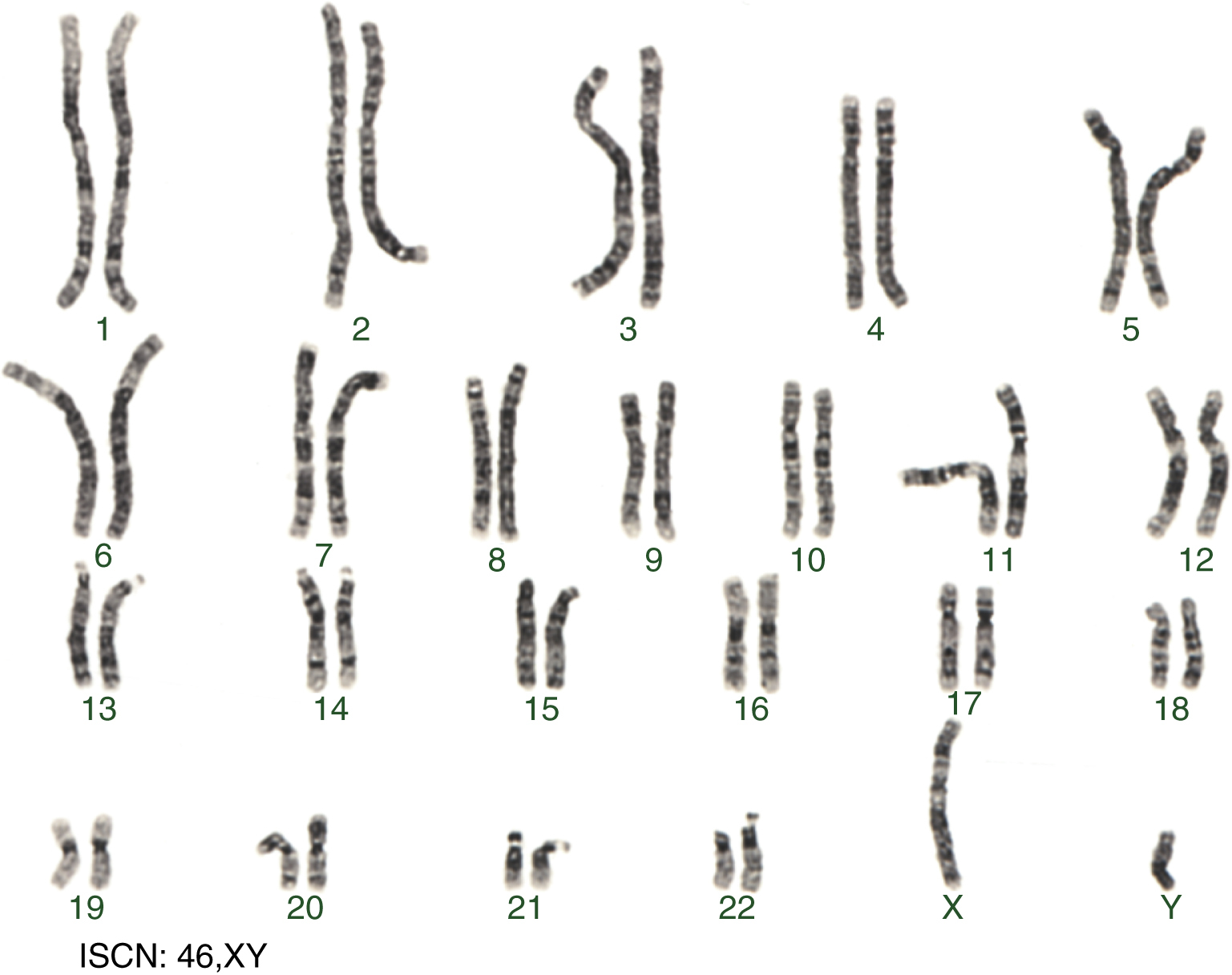chromosome /krō″məsōm/ [Gk, chroma + soma, body] , any of the threadlike structures in the nucleus of a cell that function in the transmission of genetic information. Each consists of a double strand of DNA attached to proteins called histones. The genes, which contain the genetic material that controls the inheritance of traits, are arranged in a linear pattern along the length of each DNA strand. Chromosomes are readily stainable with basic dyes and can be seen easily during cell division, when they are compactly coiled and in their most condensed state. During interphase the chromosomes disperse into chromatin and undergo self-replication, forming identical chromatids that separate during mitosis so that each new cell receives a full set of chromosomes. Each species has a characteristic number of chromosomes in each somatic cell. In humans, there are 46 chromosomes, including 22 homologous pairs of autosomes and 1 pair of sex chromosomes. One member of each pair is derived from each parent. Kinds include Christchurch chromosome, daughter chromosome, gametic chromosome, giant chromosome, homologous chromosomes, monosome, Philadelphia chromosome, sex chromosome, somatic chromosome, W chromosome. See also centromere, chromatid, chromatin, Denver classification, gene, karyotype, mitosis. −chromosomal, adj.

